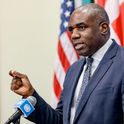Political upheaval across North Africa and the Middle East has created pockets of success. Can this bring long-term growth?
With the benefit of hindsight, the political challenges unleashed by the Arab Spring may look like the easy part to resolve, at least for those nations that overthrew their leaders this year. Getting the economy back on track and, in most cases, reforming it completely, are now the real Herculean tasks.
In examining how the economies of the Middle East and North African region have fared over the last 18 months, it is tempting to start with official statistics.
For a start, they have been produced for international consumption by authoritarian regimes. In Tunisia, official poverty numbers had previously reported a national poverty rate of 3.8 per cent in 2005. Following the revolution, however, in September 2011 the National Statistics Institute published revised poverty estimates which show that the national average poverty rate in 2005 was 11.8 per cent. Egypt’s official statistics, including those on population, also seem to have been approximate fictions at best.
In the meantime, previously underestimated factors in these economies have become more significant this year. The first is the extent of public corruption and the “disappearance” of official funding lines, both of which have increased in Egypt since the fall of the Mubarak presidency. A report issued in July by the Shura Council, Egypt’s upper house of parliament, cited 65,000 separate examples of corruption and the misappropriation of state funds in the last 12 months. The other factor is the importance of the informal, or parallel, economies of the region, which are not factored into official financial and economic reporting at all. The International Monetary Fund has estimated that the proportion of Morocco’s economy that is informal is as much as 44 per cent. This means that just under half of all economic activity is untaxed, unregulated, unmonitored and exists entirely outside all formal fiscal and legal controls—a situation echoed across North Africa.
In Egypt, headlines that the country is heading for imminent bankruptcy and a debilitating currency devaluation have substance. The drop in tourist revenues and foreign investment since 2011, together with capital flight, the effects of corruption and the unsolved mysteries of the Mubarak family’s wealth, mean that the foreign reserves of the Egyptian state have halved since the uprising. The country has failed to solve the long-delayed agreement of an IMF loan and current spending is now only possible because of loans and subsidies from the central bank and Saudi Arabia.
But Egypt’s much larger problem is that its economy does not obey the basic rules of the market. For most observers, the reform of Egypt’s market flaws will be the key to the country realising its potential in global markets. The main distortions have their basis in politics. State subsidies on basic goods, above all bread and fuel, consume at least 25 per cent of annual state expenditure and are ostensibly aimed at keeping the 40 per cent of Egypt’s population on the poverty line from starvation. In reality, these subsidies appear to benefit the top 20 per cent of Egyptians. Meanwhile, the military establishment’s control of licences for land use and business permits is central to its continuing influence over Egypt’s public and private economies.
Removing market distortions and providing legal protection for businesses must be one of the most urgent, necessary reforms in the region. Indeed, the creation of small and medium enterprises has become the new mantra of reformed and less-reform-minded governments alike, as they seek to provide jobs for their largely youthful and unemployed populations.
But any reforms in this direction will have to escape the shadow of pre-revolutionary era politics. In Tunisia, the scale of corruption during the Ben Ali era is now a fixture of public conversation, and the reputation of the private sector has suffered as a result. The idea that private businesses can behave ethically and for the benefit of others has become the mission of a few, mostly new, entrepreneurs. At the same time, some of the hidden practices and interest groups of the Ben Ali era continue, sotto voce, to pursue their ends. Legal and regulatory reforms are hampered by the networks of old and new interests that now co-exist in most ministries (including the ministry of interior, which controls the police and enforcement authorities). Rivalries between old and new employers’ federations and workers’ unions also stymie each other’s initiatives.
In short, the arrival of democracy, however imperfect, has not been sufficient to wrest financial and economic power from those who are used to holding it. In Tunisia, the much-needed redistribution of resources from the relatively affluent coastal areas to the under-invested interior provinces (where the uprisings of 2011 began) shows only limited signs of taking place. In Egypt, divisions persist between the urban rich and poor; between city dwellers and rural subsistence farmers; between the public and private sectors; between large conglomerates and very small (but few medium-sized) enterprises; between Copts and Muslims. The Islamists (Salafists and the Muslim Brotherhood) are themselves internally divided and, even with the majority of the electorate behind them, have failed to find a consensus over economic policy with the military leadership that still controls Egypt’s affairs. It is not that the Muslim Brotherhood, now heading the interim government, is against the private sector or market reforms—quite the opposite. It is the marketplace for political control over and interference in the economy (above all that of the army) that needs to be straightened out first.
This raises the question of whether a more participatory politics since 2011 has opened the way for more participatory economic systems. There is a real possibility that the failure of the new, and not-so-new, leaderships of the region to come to grips with economic reform will undermine the political gains of the Arab Spring.
Not that the region should be thought of as a single bloc. First, the oil and gas exporting states of the Gulf and Algeria have escaped lightly from last year’s popular activism, using government income from high oil prices to invest in infrastructure and buy off domestic discontent. An interesting side-story is developing in Iraq, which could function in the future as two separate hydrocarbon exporting “sub-states.” The regional government of Iraqi Kurdistan (KRG) has recently concluded two oil exploration contracts with US oil companies (Exxon Mobil in 2011 and Chevron in 2012) and one with Total, the French company, over the head of Baghdad, where the Arab-majority Maliki government is struggling to bring the Kurds into line over the central control of Iraq’s natural resources.
The second category within the MENA bloc is made up of the “post-Arab Spring” states, found mostly in North Africa, where Tunisia and Egypt have emerged with more or less coherent transitional governments, together with Libya, whose political future remains a work-in-progress. Under Colonel Muammar Gaddafi, Libya’s foreign earnings were derived almost entirely (97 per cent) from hydrocarbon exports, and the country now runs the risk that oil rent will be recentralised into a few hands once the sector fully recovers. This prize is perhaps the main reason why the internal struggles of Libyan politics are quite so intense: the militias, tribal confederations, east-west regional power bases and new and old political alliances all want to secure their piece of the hydrocarbon action.
A third tier of states, such as Morocco and, to a lesser extent, Jordan, has been engineering economic change within modified, but not radically altered, political structures. With fewer hydrocarbon resources and high import bills for both energy and basic foodstuffs, these governments’ options for rapid and fundamental reform are limited. Instead, they are engaged in a strategic juggling act to create new jobs, above all in the private sector, while seeking to maintain their overall control of the economy from the centre.
Ultimately, all of the states have sufficient competitive advantages to follow the development paths taken by the Asian and Latin American economies to which they are often, unfavourably, compared. It is no longer the case that their political systems are so inherently constrained that they will inevitably fail to break free from the past. But the region’s current lack of enlightened leadership is not helping to ensure that a more diverse and inclusive set of economies will prevail over the old, tried and tested ways of doing business.
Islamist parties, which control the governments of Morocco, Tunisia and Egypt, will inevitably colour the economic choices those countries now make, but only if the old guard lets them. As long as the economic powerbrokers of the past remain in place, no amount of electioneering or “sharia-friendly” legislation will shift the balance of influence in favour of the Islamists. As in Europe’s own history, he or she who controls the purse strings and the exercise of law controls the affairs of state. None of the new leaders of the region have achieved full control of either.












